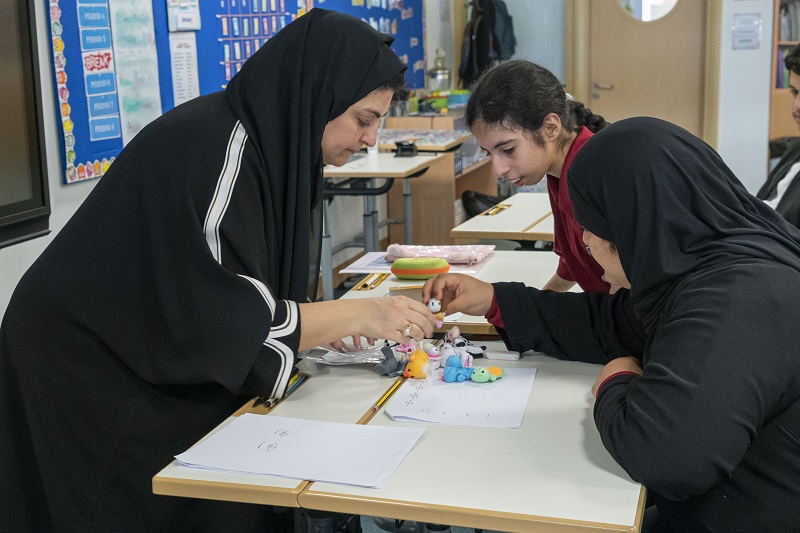
It is important to integrate every student with the community — for this they need to be equipped with a combination of academic and functional skills aligned with their personal capabilities and professional interests.
With an aim to address this need, Qatar Career Development Center (QCDC), a member of Qatar Foundation (QF), started a new initiative ‘Career Readiness Program,’ which aims to enhance the delivery of career guidance services to students with mild to moderate learning challenges from Awsaj Academy, also a member of QF.
QCDC and Awsaj Academy signed a Memorandum of Understanding (MoU) in 2018.
The Career Readiness Program represents more than just another career guidance-related project. It is an important initiative that reflects QDCD’s strong commitment to empower all segments of society to make a meaningful contribution to the community.
QCDC has tailored the initiative to students who are eager to learn outside the classroom. Awsaj Academy, a member of QF, is a K-12 specialised school that addresses the needs of students with mild to moderate learning challenges.
The programme unfolds in two stages: the pilot phase, which brought together 20 senior students from the Awsaj Prime programme, was launched in February 2015 as Qatar’s first blended learning programme, while the second phase will target more students.
“Every child deserves the best and through the programme, we try to enhance the abilities of children with mild to moderate learning challenges. Our aim is to integrate them with the community,” said Effrosyni Dimitrios Parampota, Senior Career Programs and Services Officer, QCDC.
She spoke to The Peninsula while waiting for students from Awsaj Academy to come for their weekly activities. As they entered the room, it got filled with so much of empathy, laughter and energy. They quickly introduced themselves and started conversation with this reporter. It was remarkable.
“Career Readiness Program strengthens the confidence of students, creating more opportunities to grow their skills and help them make informed choices about their professional future. It also attempts to establish effective local career eco-systems and reshape society’s approach to education and learning,” said Parampota.
“The programme features weekly cross-structural interventions and project-based learning activities that have been integrated in the school’s curriculums. Activities included workshops, motivational talks by Qatari entrepreneurs, field trips to different industries, volunteering opportunities, and social responsibility projects that highlight the ethical values of the Qatari society, and connects the larger community with students,” she added.
The programme also features practical internship opportunities.

QCDC created individual internship plans that capitalised on the strengths and interests of students. The internships ran on a weekly basis, with tasks gradually increasing in complexity and intensity.
“Through such activities, the program empowers students to become active members of society by seeking career paths that align with Qatar National Vision 2030, and contribute positively to the diversification of the Qatari economy,” said Parampota.
“The programme started as a pilot project, but we plan to include it as part of Awsaj Academy curriculum, so students will be able to get credits. Also depending on the demand we would consider expanding it to schools beyond Awsaj Academy,” she added.
Abdulrahman Al Malki, a Qatari barista who runs Frame Specialty Coffee and also works as a Marketing and Communications Officer at QCDC, is one of the entrepreneurs who inspired the students.
“It was a great opportunity to host the students and to see their excitement,” said Al Malki.
The Career Readiness Program tackles three key challenges: It assures families their child’s education is leading to a valued outcome. The second challenge is to bring awareness to the larger community about barriers students are facing and how these can be lifted. A third challenge that will be further addressed in the next academic year is to educate employers on how to integrate the concerned population in their operations.








